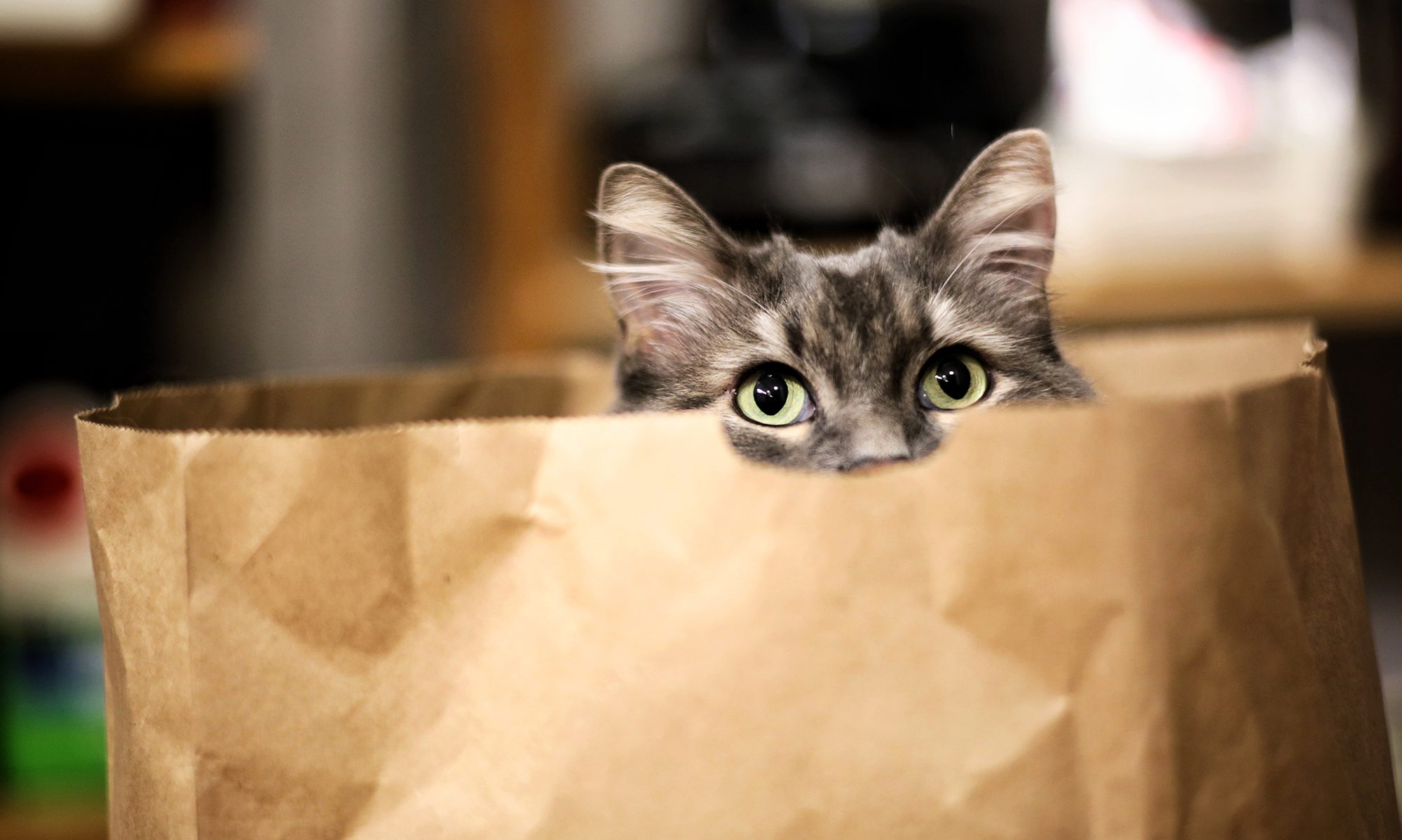Approaches and Philosophy
My three guiding principles for cat nutrition:
1. Feed food. Not too much. Mostly animals. (With apologies to Michael Pollan.)
2. Cats are carnivores with inadequate thirst instincts. Carbohydrate-heavy and dehydrated foods as staples are not the worst (no food and badly-made home made diets are), but they’re pretty bad. I’m an advocate for an anything-but-dry-food diet: feed balanced home-made raw if you can, commercial raw and high-quality canned if you can’t, and don’t feed dry food unless you have to.
Under no circumstances should you feed your cat a vegan diet. Just. Fuckin’. Don’t.
3. Compromise is necessary. We don’t always have the time, money and energy to do the best for ourselves or our family, so we do what we can in good faith, out of love for those fuzzy little bastards. Kludges and work-arounds are necessary to stay sane, and there’s nothing shameful about preserving sanity.
People can get puritanical and evangelical about raw feeding, which is stressful and unnecessary. Why guilt the shit out of somebody if they don’t have the time, money or inclination to feed raw? Much better to foster empathy and talk to people about working within the limits of their resources so we can improve cat health in whatever way we can.
Objectivity vs. Bias
I don’t claim to be unbiased about cat care. Beware of those people who claim to be making unbiased recommendations for cat care, because if there’s one thing I’ve learned in all the time I’ve been involved in dialogues about feline health, it’s this: nobody’s unbiased. We’ve transferred a lot of the purity taboos and sacred rituals inherent to religion to our beliefs about diet and healthcare. Organic vs. conventional; raw vs. cooked; home-made vs. commercial: people are really invested in their point of view. I’m not immune.
I do, however, claim to be objective—that is, I have reasons for believing in what I do, and they can be independently verified. I strive, whenever I can, to link to what scientific studies have stumbled across my attention as being worthy of notice, and to critique of the ones I think are poorly-designed.
I will do my very best to point to where I’ve gone wrong in the past, and where my practices are driven more by belief than by objectively verifiable, replicable science.
Most of all, I’m a skeptic. I don’t necessarily believe what that the pet food companies tell us is good for our pets, and I’m deeply critical about the science of industrial pet food formulation.
I’m also skeptical of a lot of claims made by raw feeders—their paranoia about the dangers of carbohydrate and vaccines, as well as wholesale buy-in into pseudoscience like raw food enzyme theory and homeopathy are aggravating at best and have sickened and killed cats at worst.
Disclaimer
Here’s a quick list of the things I’m not:
- A vet.
- A nutritionist.
- A professional in the pet care business.
I don’t work for or receive any kind of compensation from any company that makes any kind of pet care products. I don’t own a pet shop. I’m not trying to sell you anything. I’m just trying to add to the conversation.
I am, however:
- Beholden to nobody and nothing other than my cats and the overriding interest I have in ensuring they lead long, rich, fulfilling lives.
- More science- and math-literate than the average person.
- A nerd who gets unreasonably excited when talking about gluconeogenesis, who’s been known to check out veterinary textbooks from the library for fun.
My opinion is nothing more than a layperson’s, so use your common sense, do your own research, question what you read, and consult with your vet if you’re ever unsure.
Take your vet’s word over some Internet stranger’s.
My dietary stance boils down to this: cats are carnivores with inadequate thirst instincts. This means carbohydrate-heavy and dehydrated foods as staples are right out. I basically advocate for an anything-but-dry-food diet, and strongly believe that a home-made raw diet based on a whole prey model is the best you can feed your cats. But you know what? We’re human. We don’t have the time, money and energy to do the best for ourselves or our family, a lot of the time, so we do what we can in good faith, out of love for those fuzzy little bastards. In short: compromise is often necessary to keep sane, and there’s nothing shameful about preserving sanity.

I am having a tough time finding a Limited Ingredient for my cat who has food allergies that result in awful bleeding lesions on the side of her head. Do you have any recommendations?
much appreciated.
Sorry to hear about your cat! The lesions sound awful. This is truly something you should work through with your vet, because you need to figure out which novel proteins would be appropriate. If it’s venison, Ziwi Peak, Koha, Lotus, and a few others have venison-only formulas (though some contain small amounts of other proteins–Ziwi has green-lipped mussels in all of their formulations, I believe–so that’s definitely something to watch out for, because it could absolutely make a difference). Other brands have other novel protein diets like rabbit, duck, but it really should be something you do in consultation with your vet.
I wish you the best of luck, and that you find a diet that works for your cat soon.